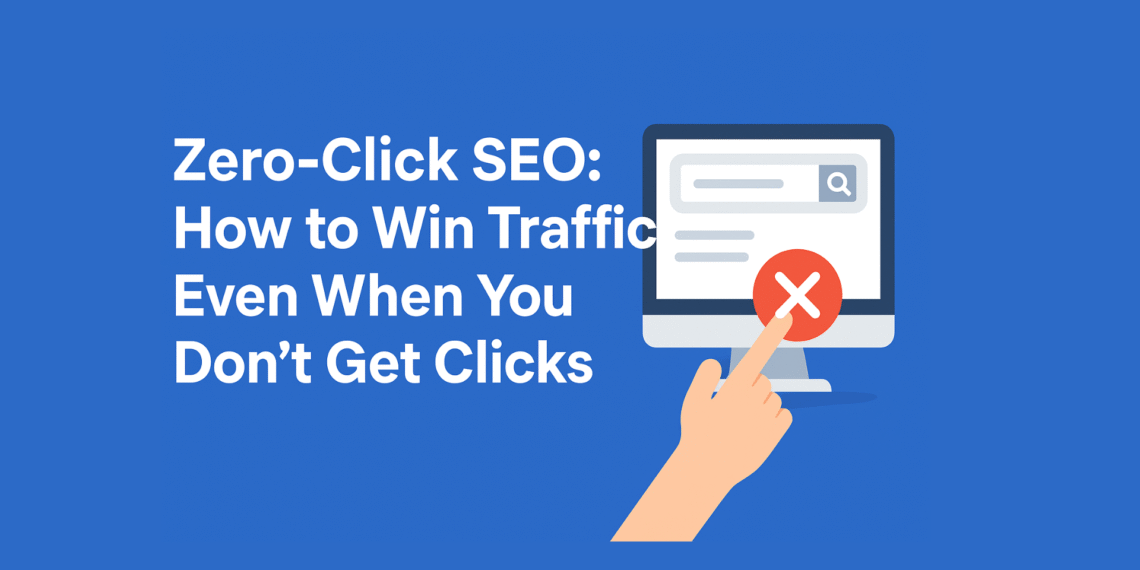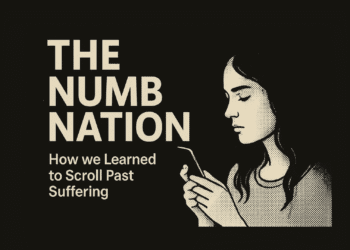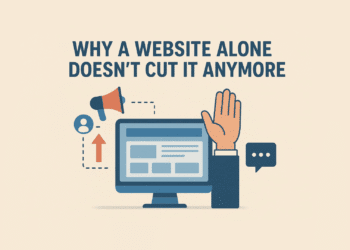You worked hard on your blog. You had meta descriptions, backlinks, SEO-optimised headlines, the whole nine yards. And then comes Google, showing all the key insights right on the results. Now you have lost clicks although your insights have gotten through to users.
Congratulations, you’ve been Zero-clicked!
But don’t lose hope — here’s the plot twist! Zero clicks on your blog or webpage isn’t necessarily bad. “Zero-click content” is changing the way marketers think about visibility, authority and attention. The question used to be “how do I get more clicks?”. But not anymore — it’s “how do I win even when I don’t?”
AI-powered tools in digital marketing have revolutionised both, experiences and the process. Search engines no longer crawl web pages for content and then serve it to users. But in recent days, they are aggregating content from everywhere and providing a short summary to all users — effectively removing the need for a user to click on any web page. No click required.
Based on a 2024 study by Rand Fishkin, SparkToro’s CEO and co-founder, based on clickstream data from Datos, nearly 60% of all Google searches end without a click.
But what even is Zero-click?
A zero-click search is essentially when a user looking for some information on the internet finds their answer directly on the SERP (search engine results page) without clicking on any results to visit any web page. These are done in features on the SERP like AI Overviews, People Also Ask Boxes and featured snippets.
Featured snippets and People Also Ask boxes have always been a part of the Google SERP. However, the game-changer is the AI Overview. As data is aggregated from your website, there are chances your Impressions can be high and you may face a steep fall in Click-Through Rate. But don’t worry, Zero-click isn’t the end — it’s an evolution.
Why is it an evolution?
Zero-click flips the traditional SEO logic on its head. Now, instead of chasing traffic, it rewards trust, expertise and visibility. So now, “bad” blogs with “good” SEO will no longer be blindly rewarded.
This can be very powerful and useful, considering how noisy and attention-short the world has become. The goal is no longer just clicks, but credibility. When users see your insights being featured on AI overview repeatedly, they realise that you are an expert on the subject matter. It is more or less like billboard exposure — just smarter and digital.
Winning the Zero-click Game
While Zero-click seems like the result of sheer luck, there are some ways content can be optimised to ensure you optimise and win the zero-click game as well:
-
Optimise content for featured snippets and AI overviews — Use concise, structured answers that are between 40–60 words for key queries. Break down your content into clear headers, numbered lists and FAQs. Search engines instantly fall in love with structured content because it is easier to summarise and quote them.
-
Create Search-resistant content — There are some formats that cannot be fully summarised. These include original data, opinion essays, detailed case studies, or even storytelling-led marketing. Basically, the entire experience cannot be summarised or replicated in a snippet. Give users reasons like this to click on your page.
-
Build your authority beyond just Google — your audience does not live only on search. Repurpose your blog’s insights into carousels on LinkedIn, quick reels on Instagram, or even infographics on X. Zero-click SEO might limit traffic, but multi-platform visibility mitigates that risk and multiplies it back.
-
Track only what matters, and actually matters — Shift and redefine your KPIs from just CTR to impressions, brand mentions and search visibility. The true ROI is influence and not just visits.
-
Build content ecosystems, not just posts — Create clusters of content around one core idea — blogs, infographics, videos, podcasts — all linking back to each other. This helps Google understand topical authority and keeps users within your brand’s ecosystem even if they don’t always start with a click.
The future: from clicks to credibility
With AI summarisation and other features growing, the content game is moving from owning just traffic to also and mainly owning trust. Google’s new AI overviews are just the start. Tomorrow’s searches will be about context and not clicks.
So, yes, you may be “zero-clicked.”
But if your voice is the one Google chooses to amplify, haven’t you already won?












